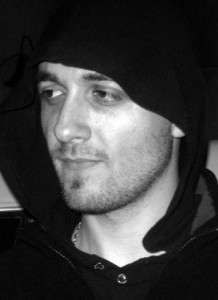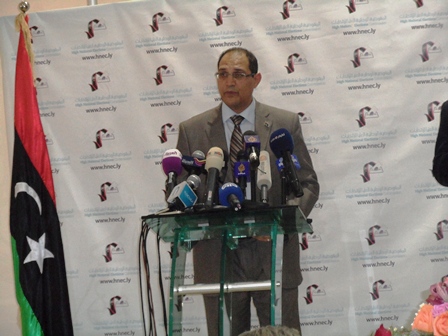by Nihal Zaroug
Tripoli, 10 June:
The 28 year old Libyan IT technician who beat Qaddafi’s news blackout by founding Libya’s first free . . .[restrict]TV station and was murdered just a month later by a sniper’s bullet, has been honoured as one of the world’s top 500 most influential Arabs.
Mohammed Nabbous, has been rated fifth in the Power 500 List published today by the magazine Arabian Business. The hugely-talented “Mo” Nabbous set up Libya Al Hurra TV, on 19 February in Benghazi, two days after the Revolution had begun. Because the regime had shut down terrestrial internet, Nabbous rigged up a two-way satellite link which enabled his TV station to start broadcasting online.

One of his many memorable broadcasts was of the aftermath of an attack on an Benghazi power station, where he went so close to a flaming oil storage tank to get better pictures, that he was almost overcome by the heat.
His proclamation “I am not afraid to die, I am afraid to lose the battle” would go on to became as famous as Omar Al Mukhtar’s “We do not surrender. We will fight and we win or we die.”
As the citation in Arabian Business reads: “ In the last weeks of his life, Nabbous focused on bringing international attention to the humanitarian crisis unfolding in Libya, with his reports being widely reported by western media organisations, and seen by leading politicians across Europe and the USA.”
Nabbous the skilled technologist turned himself in a powerful blogger and an effective civilian journalist whose fearless reports did much to demonstrate the ruthlessness with which Qaddafi and his people were seeking to crush the revolution that had broken out in the east of the country. In the end he was a victim of that same brutality, when he was shot dead by a sniper on 19 March as he covered fighting on the outskirts of the city during the Second Battle of Benghazi.
On the day of his death, Mo Nabbous’ wife Perdita vowed that Libya al Hurra TV – Free Libya TV – would continue to broadcast. Hours after his murder UN Coalition planes were enforcing a No-Fly Zone over Libyan airspace. Libya A lHurra TV’s eyewitness reports of events in Benghazi are credited with turning world opinion on the situation in Libya, leading to the intervention by allied forces.
Also mentioned on the Power 500 are three other Libyans; Ibrahim Al Koni and Khaled Mattawa who are listed for their writing, and Maher Zain listed for his musical achievements.
[/restrict]










